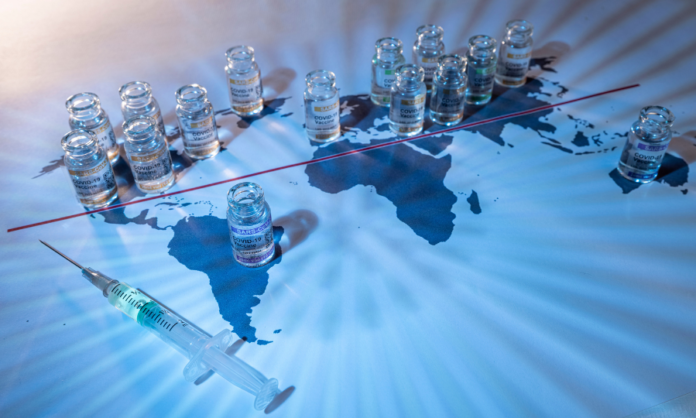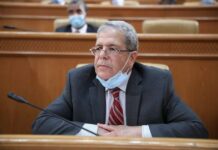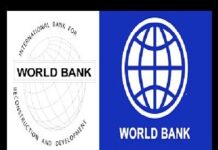The French newspaper “Le Monde” indicated in its report on the distribution of vaccinations in the world, that while the threat of new mutated strains of the Corona virus looms, access to vaccines is still characterized by inequality and the failure of the aid system for poor countries.
“Le Monde” also reported that rich countries have up to 3.3 billion doses of the vaccine, of which only 1 percent have been given to poor countries.
A recent study revealed that not all people on this planet will be fully vaccinated before the year 2023, and 11 billion doses of vaccination must be provided to vaccinate the entire population of the world.
90% of African Countries are far from the Vaccination Target
In Africa, less than 2 percent of the population is (partially) immune to the coronavirus.
According to the World Health Organization, the African continent suffers from the lowest rate of vaccination against Corona compared to all the continents of the world, as nine out of ten African countries will fail to achieve the September goal of vaccinating 10 percent of their population.
4 million corona deaths have also been exceeded, and the numbers are estimated to be incomplete, according to the statement of the head of the World Health Organization, Tedros Adhanom, who warned of the resurgence of the epidemic in many countries of the world, while the most contagious delta mutated is spreading like wildfire on this planet, and the world is now in A dangerous point in this epidemic.”
What are the Reasons for this Division between the North and the South of the World?
The political analyst and professor at the university, Mounir al-Sharfi, considered that the gap between the developed countries and the poor countries has existed since ancient times and in all fields, so it is not surprising that we note this gap today at the level of enjoying pollination, but what is considered new today is that the rich world could have kept on this gap in the financial and economic field only, but in the health field, this is surprising and unfair, because the health field is a matter of life or death and is related to the value of the human being, according to him.
Al-Sharfi stressed that this is unacceptable, considering that it is a crime against the poor, as they are human beings and not a substance. Health is supposed to be a right for everyone, given that the Universal Declaration of Human Rights affirmed that “health is a right for every human being in the world.”
Economic Reasons
“The Covid crisis clearly demonstrated the selfishness of the major countries and the great powers, embodied in the absence of solidarity, especially towards African countries and poor countries in general, and this selfishness was embodied in the absence of justice in the distribution of vaccinations,” this is how the economist and former minister Mohsen Hassan began his speech to “JDD Tunisia” to explain this phenomenon.
Hassan pointed out that some countries have been able to vaccinate the majority of their people up to the stage of vaccinating children, while poor countries are unable to provide vaccinations for the priority groups.
The reasons are represented in the absence of solidarity and the selfishness of the great powers, in addition to the pharmaceutical industry lobbies, which are “very dangerous”, because they are governed by interests and goals, and therefore these lobbies distribute these vaccinations and medicine in general according to their own interests and benefits, according to the economist Mohsen Hassan.
Solutions
How can this phenomenon be resisted? The economist, Mohsen Hassan, answers that poor countries are required first to aggregate and pressure by working at the continental level, whether at the level of the African Union or others, and it is also possible to work at the regional level, such as the Maghreb level, to negotiate with vaccine manufacturers as a group.
Secondly, at the level of countries, diplomacy must be activated as quickly as possible, and evidence of the efficacy of this method is Tunisia’s recent resort to activating Tunisian diplomacy, which enabled us to bring in large quantities of vaccinations.
Third, going towards industrialization, such as the initiatives launched by Morocco and Egypt, and coordination between countries, whether Arab or African, is a necessary step in the field of vaccine manufacturing.
Our interlocutor emphasized that all poor countries must press for the right to intellectual property for pollination, meaning that it becomes available to everyone, so that each country can produce its needs, by putting pressure on the World Trade Organization, since it is the right of poor countries at a time of crises and pandemics to benefit from the global intellectual property pollination effort.
For his part, Florence Debar, a researcher at the French National Center for Scientific Research, warned, “The epidemic will not end until it ends everywhere in the world.”
Tunisia and Vaccination
As for Tunisia, it is the fifth African country in terms of the number of people vaccinated against the Corona virus, vaccinating more than 1.5 million people so far and the second in North Africa after Morocco, contrary to what is being promoted about the slow pace of the national vaccination campaign, according to a statement by the Minister of Health Fawzi Al-Mahdi on June 18.
The latest figures, according to the Ministry of Health, however, indicate that the number of Tunisians who completed the vaccination was 65,494 as of Tuesday, July 13th.
In this context, the professor of political communication, Mounir al-Sharfi, suggested that the issue of not providing adequate vaccinations is not a question of poverty, but rather a misconduct by governments and their indifference to the health of their citizens.
He continued: “Tunisia does not have sufficient vaccinations today, not for reasons of lack of money, but for the reason that demands were not submitted to bring vaccinations in a timely manner. On the other hand, third world countries in general, governed by undemocratic regimes, do not think about the health of the citizen, which is the most important right of every person.”
B.M











